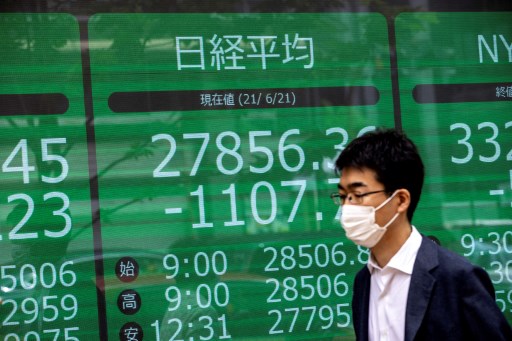
403
Sorry!!
Error! We're sorry, but the page you were looking for doesn't exist.
Japan's Nikkei records strongest January performance in more than 20 years
(MENAFN) In a remarkable turn of events on Wednesday, the Japanese Nikkei index achieved its most robust January performance in 26 years. Overcoming early declines primarily driven by setbacks in chip company shares, the index rebounded from a one-percent dip in early trading to close the session with a 0.61 percent gain at 36,286.71 points. This propelled its monthly gains to an impressive 7.77 percent, marking the best start to a year since its approximately nine percent surge in January 1998.
Notably, the Nikkei has emerged as the top-performing index globally, outpacing the gains of both the Standard & Poor's 500 index and the Nasdaq Composite, with increases of 3.3 percent each. Despite the strong performance, the Nikkei still hovers about 1.9 percent below the 34-year peak of 36,984.51 points recorded on January 16. Several factors have contributed to this surge, including foreign investor inflows from China, a weakened yen boosting corporate profits, heightened enthusiasm surrounding corporate governance reforms, and significant overall market momentum.
The early decline in the Nikkei was attributed to disappointing financial results from industry giants like Microsoft, Alphabet, and Advanced Micro Devices, leading to a challenging start for chip-related companies. However, the index managed to recover and trim its losses during the afternoon session. This resilience underscores the dynamic nature of the market and the influence of both domestic and global factors on Japan's stock performance.
Notably, the Nikkei has emerged as the top-performing index globally, outpacing the gains of both the Standard & Poor's 500 index and the Nasdaq Composite, with increases of 3.3 percent each. Despite the strong performance, the Nikkei still hovers about 1.9 percent below the 34-year peak of 36,984.51 points recorded on January 16. Several factors have contributed to this surge, including foreign investor inflows from China, a weakened yen boosting corporate profits, heightened enthusiasm surrounding corporate governance reforms, and significant overall market momentum.
The early decline in the Nikkei was attributed to disappointing financial results from industry giants like Microsoft, Alphabet, and Advanced Micro Devices, leading to a challenging start for chip-related companies. However, the index managed to recover and trim its losses during the afternoon session. This resilience underscores the dynamic nature of the market and the influence of both domestic and global factors on Japan's stock performance.

Legal Disclaimer:
MENAFN provides the
information “as is” without warranty of any kind. We do not accept
any responsibility or liability for the accuracy, content, images,
videos, licenses, completeness, legality, or reliability of the information
contained in this article. If you have any complaints or copyright
issues related to this article, kindly contact the provider above.


















Comments
No comment